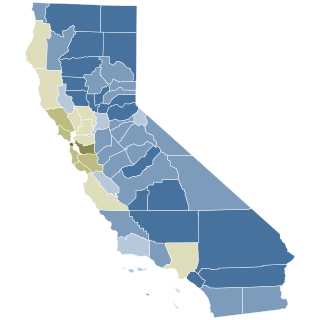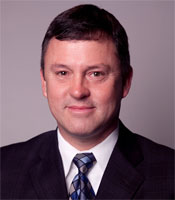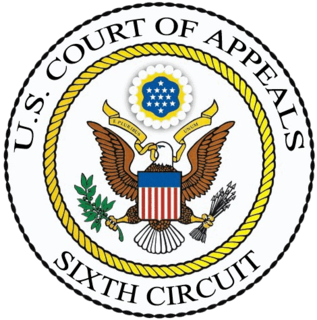A recall election is a procedure by which, in certain polities, voters can remove an elected official from office through a referendum before that official's term of office has ended. Recalls, which are initiated when sufficient voters sign a petition, have a history dating back to the constitution in ancient Athenian democracy and feature in several current constitutions. In indirect or representative democracy, people's representatives are elected and these representatives serve for a specific period of time. However, where the facility to recall exists, if any representative comes to be perceived as not properly discharging their responsibilities, they can be called back with the written request of a specific number or proportion of voters. Even where they are legally available, recall elections are only commonly held in a small number of countries including the United States, Peru, Ecuador, and Japan. They are considered by groups such as ACE Electoral Knowledge Network the most rarely used form of direct democracy.

The 2003 California gubernatorial recall election was a special election permitted under California state law. It resulted in voters replacing incumbent Democratic Governor Gray Davis with Republican Arnold Schwarzenegger. The recall effort spanned the latter half of 2003. Seven of the nine previous governors, including Davis, had faced unsuccessful recall attempts.
Elections in the United States refers to the rules and procedures regulating the conditions under which a candidate, political party, or ballot measure is entitled to appear on voters' ballots. As the nation's election process is decentralized by Article I, Section 4, of the United States Constitution, ballot access laws are established and enforced by the states. As a result, ballot access processes may vary from one state to another. State access requirements for candidates generally pertain to personal qualities of a candidate, such as: minimum age, residency, citizenship, and being a qualified voter. Additionally, many states require prospective candidates to collect a specified number of qualified voters' signatures on petitions of support and mandate the payment of filing fees before granting access; ballot measures are similarly regulated. Each state also regulates how political parties qualify for automatic ballot access, and how those minor parties that do not can. Fundamental to democracy, topics related to ballot access are the subject of considerable debate in the United States.
Same-sex marriage in California has been legal since June 28, 2013. The U.S. state first issued marriage licenses to same-sex couples on June 16, 2008 as a result of the Supreme Court of California finding in In re Marriage Cases that barring same-sex couples from marriage violated the Constitution of California. The issuance of such licenses was halted from November 5, 2008 through June 27, 2013 due to the passage of Proposition 8—a state constitutional amendment barring same-sex marriages. The granting of same-sex marriages recommenced following the U.S. Supreme Court decision in Hollingsworth v. Perry, which restored the effect of a federal district court ruling that overturned Proposition 8 as unconstitutional.
The Oklahoma Libertarian Party is the state affiliate of the Libertarian Party in Oklahoma. It has been active in state politics since the 1970s, but due to Oklahoma's ballot access requirements the party has been an officially recognized party during only portions of the last twenty-five years. In 2016, The Oklahoma Libertarian Party regained ballot access. The state party has secured ballot access through at least 2024.

The Michigan Civil Rights Initiative (MCRI), or Proposal 2, was a ballot initiative in the U.S. state of Michigan that passed into Michigan Constitutional law by a 58% to 42% margin on November 7, 2006, according to results officially certified by the Michigan Secretary of State. By Michigan law, the Proposal became law on December 22, 2006. MCRI was a citizen initiative aimed at banning consideration of race, color, sex, or religion in admission to colleges, jobs, and other publicly funded institutions – effectively prohibiting some affirmative action by public institutions based on those factors. The Proposal's constitutionality was challenged in federal court, but its constitutionality was ultimately upheld by the Supreme Court of the United States.

William Duncan Schuette is an American lawyer and politician who served as the 53rd attorney general of Michigan from 2011 to 2019. He was the unsuccessful Republican nominee for Governor of Michigan in the 2018 gubernatorial election.

Leon Drolet is a Michigan Republican politician and elected Macomb County Commissioner. He is a political activist known for his conservative fiscal views, which have caused criticism from politicians from both sides, including Candace Miller, l Brooks Patterson and Mark Hackel. He is also known for his support of the Constitution Party and endorsement of several of its candidates. From 2001 to 2006 Drolet served in the Michigan House of Representatives. Drolet also served as a Macomb County, Michigan county commissioner from 1999 to 2000 and from 2006 to 2008. Drolet was a active in the Southeast Michigan Tea Party Movement.
Sonia Yaco was the 1972 Human Rights Party candidate for the Ann Arbor, Michigan, school board. When she ran for office at the age of fifteen, she was the youngest documented candidate ever for a publicly elected school board seat in the United States.
The Virginia State Board of Elections (SBE) was created in 1946 as a nonpolitical agency responsible for ensuring uniformity, fairness, accuracy and purity in all elections in the Commonwealth of Virginia. The SBE promotes the proper administration of election laws, campaign finance disclosure compliance, and voter registration processes in the state by promulgating rules, regulations, issuing instructions, and providing information to local electoral boards and general registrars. In addition, the SBE maintains a centralized database of statewide voter registration and election related data.

Yes on Term Limits v. Savage, 550 F.3d 1023, is a case in which challenged Oklahoma's residency requirements for petition circulators. In 2007, the organization Oklahoma Yes on Term Limits filed a federal lawsuit against Oklahoma Secretary of State Susan Savage on First Amendment grounds. At the time, Oklahoma required petition circulators to be a state resident which it argued was "narrowly tailored" to uphold the integrity of the petitioning process in the state.

Nader v. Brewer, 531 F.3d 1028 is a 2008 decision by the Ninth Circuit ruling that certain Arizona voting regulations were unconstitutional under the First Amendment to the United States Constitution.

Citizens for Tax Reform v. Deters, 518 F.3d 375, was a decision that overturned an Ohio statute that made it a felony to pay petitioners by the signature.

The Citizens in Charge Foundation (CCF) is a nonprofit, non-partisan organization that advocates in favor of direct democracy. It was founded by libertarian activist Paul Jacob who has served as its president since its founding in 2001.

The Colorado recall election of 2013 was a successful effort to recall two Democratic members of the Colorado Senate following their support of new gun control legislation. Initially four politicians were targeted, but sufficient signatures could only be obtained for State Senate President John Morse and State Senator Angela Giron.
Larry Charles Inman is an American politician in the Republican Party who formerly represented the 104th District—which includes Grand Traverse County—in the Michigan House of Representatives after being elected in November 2014.
Horace Sheffield III is an American pastor and media personality. As of 2018 he resides in Detroit, Michigan, where he is an on-air radio personality for 1200 AM/WCHB, as the host of On The Line and an on-air television personality for Channel 38/WADL, as the host of Real Talk Weekly. Sheffield is also the Pastor of New Destiny Christian Fellowship, which has churches in Detroit and Brooklyn, New York.
Before Election Day of the 2020 United States presidential election, lawsuits related to the voting process were filed in various states. Many of these lawsuits were related to measures taken by state legislatures and election officials in response to the COVID-19 pandemic.
The following is a timeline of major events before, during, and after the 2020 United States presidential election, the 59th quadrennial United States presidential election, from November 2020 to January 2021. For prior events, see Timeline of the 2020 United States presidential election (2017–2019) and Timeline of the 2020 United States presidential election.
The Donald Trump 2020 presidential campaign launched numerous lawsuits contesting the election processes of Michigan. All of these have either been dismissed or dropped.








